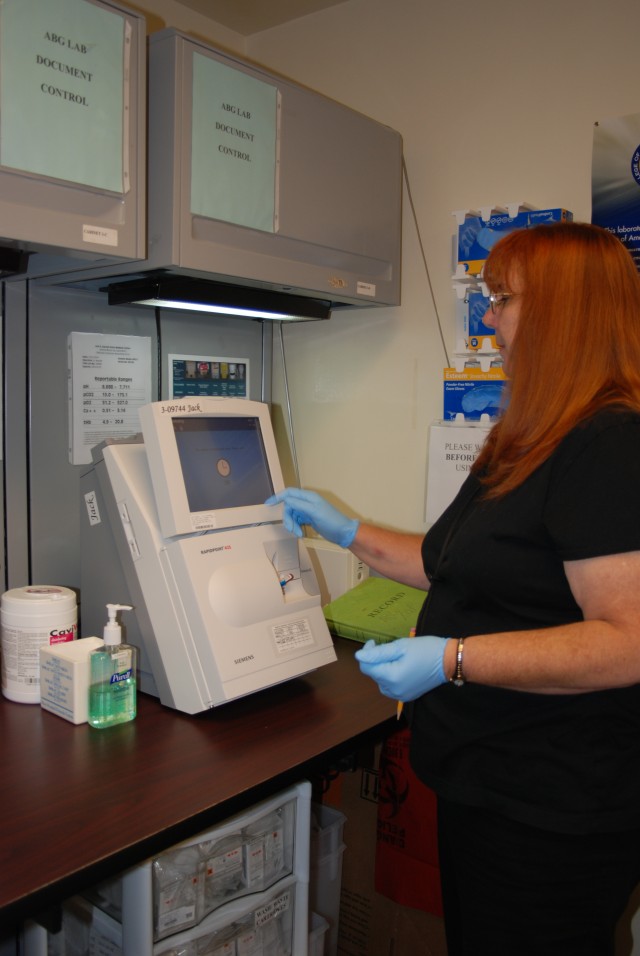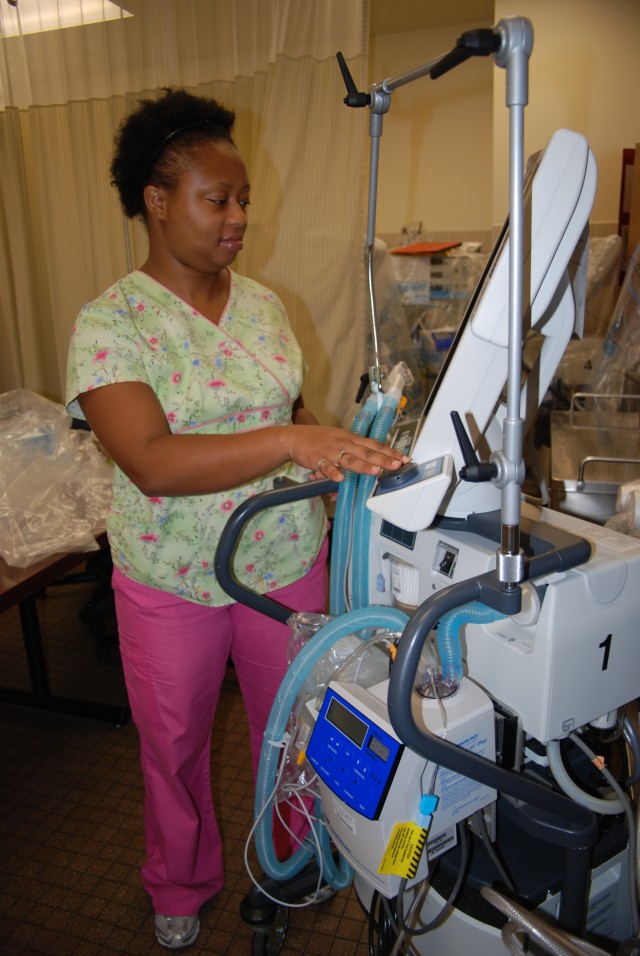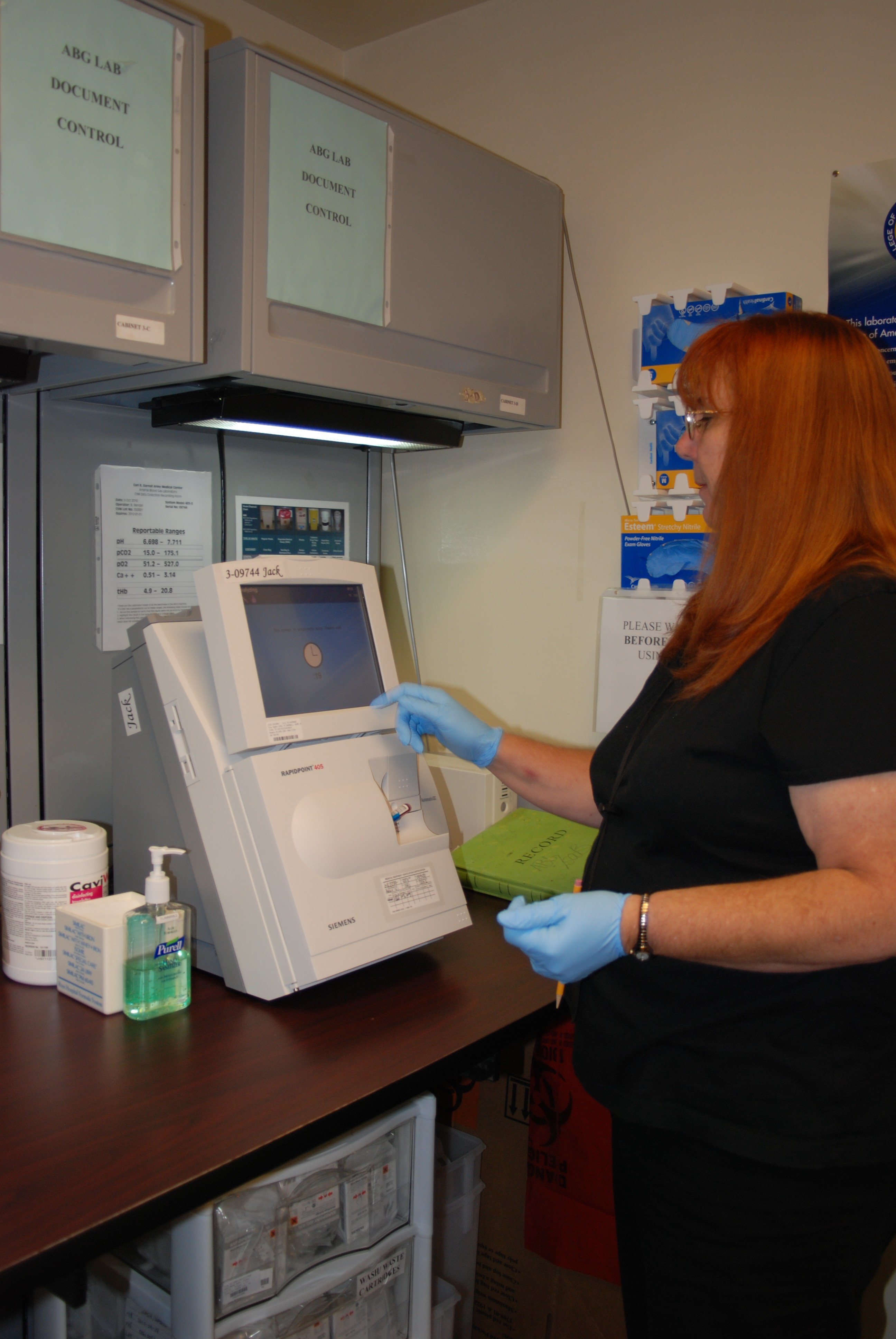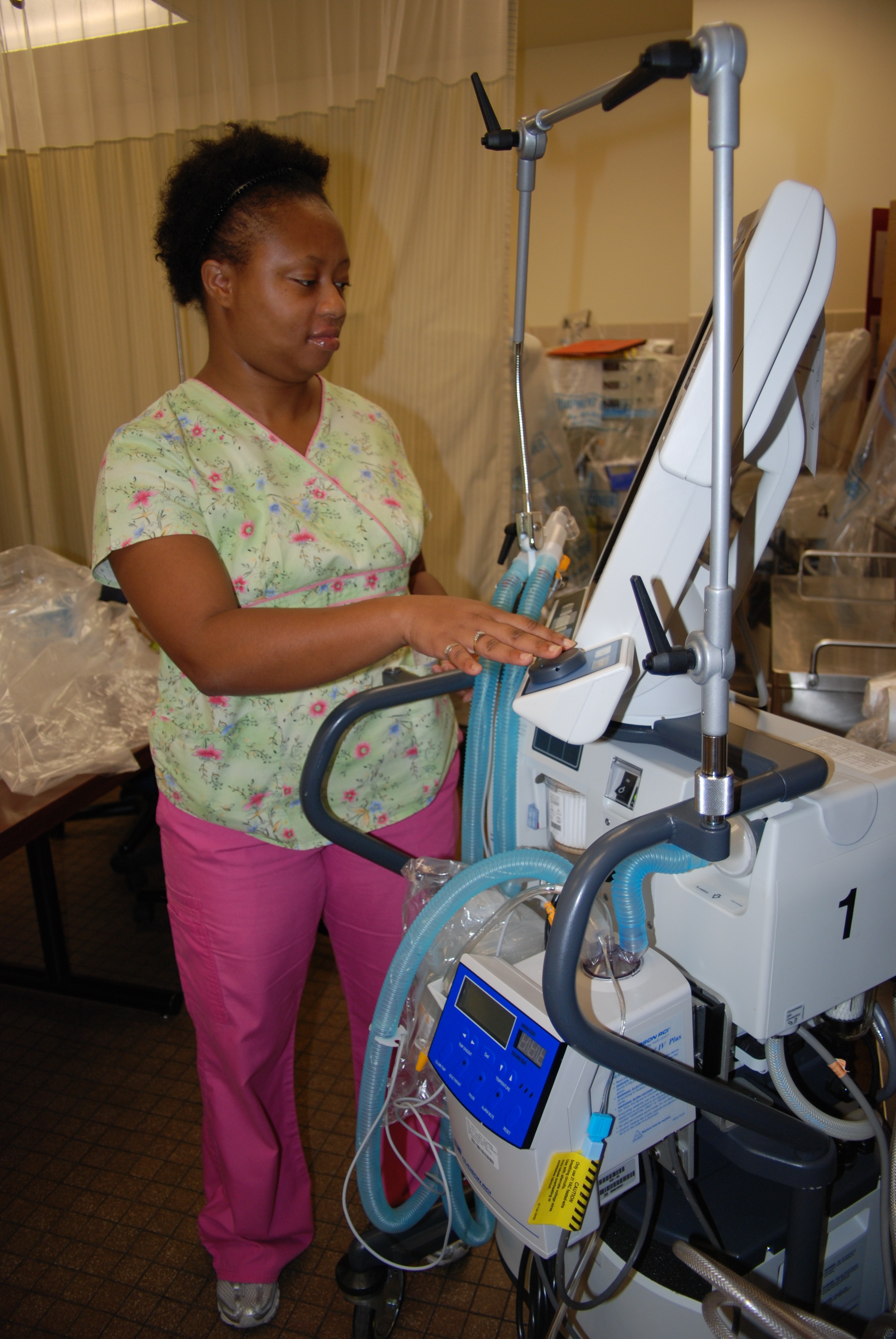FORT HOOD, Texas - Take a deep breath. Now exhale.
Breathing is easily taken for granted, but the moment a person suffers a sinus infection, food traps the airway or a person is submerged under water, the moment a person can't breathe, the involuntary action suddenly takes center stage.
At Carl R. Darnall Army Medical Center, 17 certified Respiratory Therapists are trained to be there when those fearful moments happen.
CRDAMC Respiratory Services provides 24-hour support throughout the hospital to emergency care, medical, surgical and neonatal intensive care, pediatrics, pulmonary, arterial blood gas and laboratory testing settings.
"We are accountable to the health care team, but above all, we are accountable to our Soldiers and their families," said Staff Sgt. Terrilyn M. Williams, Respiratory Services assistant noncommissioned-officer-in-charge. "Through care and concern, we support our Soldiers and their families, which further supports mission readiness, deployment and the conservation of fighting strength."
The Respiratory Services team is promoting that support through Respiratory Care Week, which runs Oct. 24-30, and Lung Health Day, which is Oct. 27.
"Respiratory therapists at CRDAMC are committed to helping those suffering from lung disease," said Maj. Kyra Clark, section chief. "Respiratory Care Week is an important time for them to demonstrate pride in the profession, provide educational messages and acknowledge the efforts and contributions of respiratory therapists."
On Oct. 22 and 26, CRDAMC's respiratory therapists and asthma educator, will speak at CRDAMC's Adopted School, Saegert Elementary. On Friday, they will address Killeen Independent School District parent liaisons, and on Tuesday, they'll talk to parents and fourth graders.
The program is aimed at increasing awareness about lung health issues, demonstrating the value of respiratory care and educating prospective students about the diverse career opportunities in the respiratory care profession.
It is also a time to recognize the efforts of the military respiratory therapists who, in addition to working with their civilian counterparts, often deploy with combat support hospitals for humanitarian missions and combat duty.
Williams recently completed a deployment to Iraq. While there, her unit closed the hospital in Baghdad and opened a U.S. forces hospital on Sather Air Base. She said being a respiratory therapist downrange was challenging.
"There are a lot less of us in a combat environment, so we have to be ready for 24-hour shifts," she said.
Her duties weren't limited to a hospital setting either. She said once patients were stabilized, she would fly with them to a location where they could get more advanced care.
To become a Military Respiratory Specialist, the 68V military occupational series, Soldiers are required to pass a rigorous advanced individual training program.
According to the Army Medical Department, the Respiratory Specialist Program is one of the Army's most demanding and challenging programs. The nine-month training is equivalent to the two-year program offered in the civilian sector and includes 20 weeks of classroom training and 16 weeks of clinical rotations.
At Darnall, there are six military and 11 civilian respiratory therapists who provide ventilatory life support, pharmacological aerosol administration, oxygen systems set-up and monitoring, pulmonary functions testing, sleep studies, blood gas sampling and analysis, patient teaching and more.
"A lot of people aren't familiar with what we do," said Williams. "They watch TV. They see the ventilators. We want to let people know we are monitors of respiratory health. We are part of the Code Blue Team. We are part of the trauma team."
"We are expected to be there always," she said.




Social Sharing